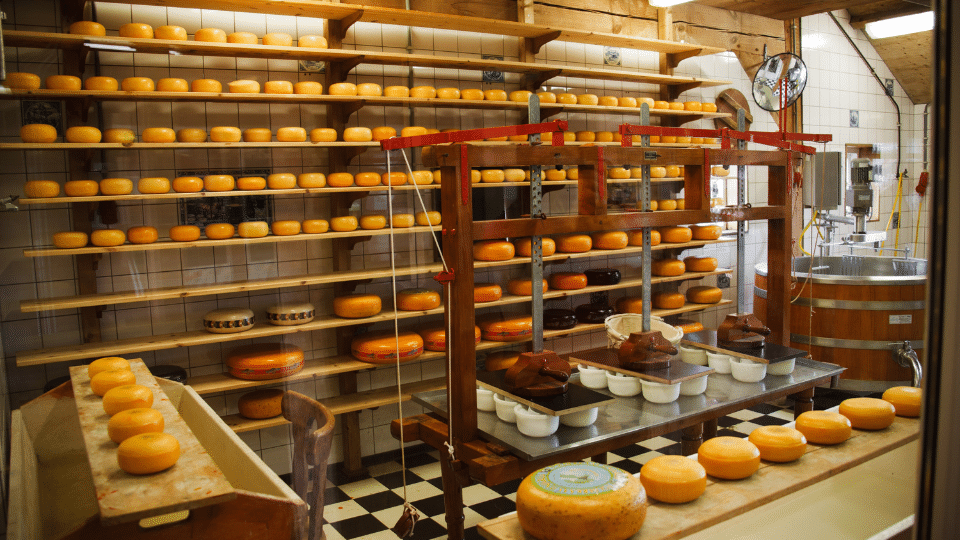
It’s no surprise that bakery is one of the food industry’s most dependable performers. Baked goods are a staple of households, from celebratory desserts to everyday snacks, and the category’s products appeal to a wide variety of consumer tastes and needs. The bakery category is also incredibly resilient. As a staple food, it’s insulated from fluctuations in household incomes and business cycles compared to the broader food and beverage industry. These characteristics, coupled with bakery manufacturers’ ability to continually innovate and adapt to consumer trends, have attracted investors and boosted M&A activity in recent years.
The $75 billion U.S. bakery market has shown steady historical growth, with industry revenue rising roughly 4% annum from 2004 to 2022. Growth shows no signs of slowing thanks to steady consumption of staples like bread, plus the rise of new products that serve evolving consumer tastes. With growing demand for products that appeal to the health-conscious (e.g., gluten-free), packaged items that offer convenience (think frozen pizza), thaw and bake products at the local grocery store, or sweets that satisfy a snack break (Americans are now eating three or more snacks a day), the U.S. bakery industry is on an upward trajectory.
A Resilient Category, Though Not Without Its Challenges
The U.S. bakery market is comprised of a handful of large-scale commercial bakeries and thousands of smaller, regional companies. Despite the resiliency and durability of the bakery category, the past few years have proven challenging for the industry, particularly for smaller operators. Pandemic-era challenges such as supply chain disruptions, skyrocketing costs, and a tight labor market squeezed margins and threatened the ability to serve customers. While these pressures have lessened, the bakery industry continues to grapple with aging infrastructure and workforce challenges. Many manufacturers, having operated for several decades, have exhausted their equipment and require significant investment to modernize systems.
In addition to aging infrastructure challenges, the bakery industry is dealing with demographic shifts. The industry’s labor force is aging, and the pipeline of talent is thin as experienced workers near the end of their careers. From 2018 to 2021, the total number of bakery workers declined nearly 12%, leaving operators struggling to replace highly experienced talent. Investing in facility upgrades, automation, and talent development is critical to maintain operations and remain competitive.
Opportunities for Growth
As if aging infrastructure and demographic shifts weren’t enough to deal with, baked goods manufacturers must also contend with changing consumer tastes and in the current environment, tightening wallets. Yet even when consumer dollars are stretched thin, bakery provides a relatively low-priced source of food and for many, an affordable luxury. Category innovations have also spurred a premiumization trend with shoppers willing to pay up for indulgences, better-for-you products, and goods that cater to dietary needs. Operators that are adapting to meet customer needs – such as incorporating protein enhancements to satisfy health-conscious shoppers, producing goods that appeal to heritage and culture, or offering product formats like pre-cut cakes that lessen the need for labor – are well-positioned to attract investors and buyers.
Buyers Have an Appetite for Deals
From an M&A perspective, the growth in frozen bakery products for the grocery channel, the consumer shift to healthier products such as gluten-free or organic, and the high degree of fragmentation in the bakery industry has spurred acquisitions in recent years. General Mills acquired private equity-backed TNT Crust, a frozen pizza supplier, for $253 million. Flowers Foods spent $270 million on Papa Pita Bakery, a manufacturer and distributor of baked goods including bagels, tortillas, breads, and buns. Many private equity firms have acquired bakeries and are pursuing companies to add to their platforms. Private equity firm PNC Riverarch, which already owns Costanzo’s Bakery, acquired Backerhaus Veit, a producer of artisan, European-style breads, rolls, buns, and soft pretzel products. Legacy Bakehouse, a manufacturer of baked snack ingredients, was acquired by Benford Capital Partners.
Bakery owners are constantly being approached by potential buyers. The buyers are typically looking for frozen, healthier, and ethnic products as well as opportunities to expand within their product categories, access adjacent customers, or increase points of distribution. For sellers, consistent M&A activity over the past decade shows that investors see growth for the category and are willing to pay up in price for bakeries with good margins and growth potential. Healthy competition for the top bakeries has increased valuations in recent years, with strong purchase price / cash flow (EBITDA) multiples.
Bakery industry challenges remain, and the market is increasingly competitive. Many smaller operators who are well positioned with a solid customer base, a robust portfolio of goods, and healthier product lines could explore a sale at today’s attractive pricing, with options to sell to an industry competitor or a private equity group (PEG). Selling majority ownership but not 100% to a PEG allows the owner to take significant funds off the table, while securing growth capital to invest in automation, operational enhancements, and further acquisitions.
For bakery operators, pursuing a sale in today’s active M&A market offers many benefits from finding the right partner to help fuel growth to securing a promising future for loyal employees. While the right deal looks different for each company, operators would be wise to consider current market dynamics and pursue opportunities that help them meet their goals and ultimately, solidify their legacies in the bakery industry.
Download the article here.













